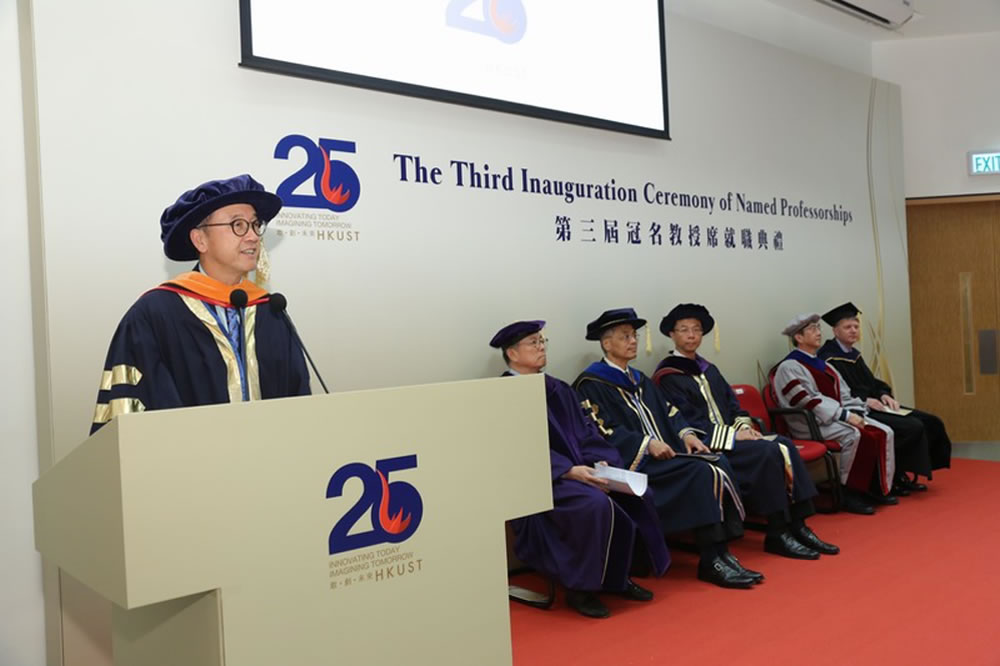Professor, Department of Electronic and Computer Engineering
For more than two decades, Professor Li Zexiang's mission has been to bridge the gap between academia and industry to drive forward social and economic development. In today’s rapidly technologizing society, his pioneering robotics and manufacturing solutions are helping to foster an age of smart automation.
Born in Hunan, China, Professor Li was one of the first mainland Chinese students to study the emerging field of robotics in the U.S. in the 1980s. He obtained his B.S. degree in Electrical Engineering and Economics (with honors) from Carnegie-Mellon University, followed by an M.A. in Mathematics and Ph.D. in Electrical Engineering and Computer Science from the University of California, Berkeley.
After 13 years spent exploring robotics and artificial intelligence at leading institutions in the U.S., Professor Li joined HKUST's School of Engineering in 1992, just a year after the University's founding. It was there, challenged by an industrialist to retrofit a piece of Japanese machinery, that he recognized the potential of translating research output into practice.
"From then on, we began to think about how to take our research from the laboratory and turn it into useful products for industries around us.”
Professor Li's expertise lies in multi-fingered robotic hands, precision assembly and motion controllers, all key directions for the automation of China's rapidly growing computer, communications and consumer electronics manufacturing industry. Googol Technology, co-founded by Professor Li just a month before its more famous U.S. namesake, was the first hi-tech company in the Asia-Pacific region to focus on motion controllers and controller-based systems. Even more spectacularly, Da-Jiang Innovations (commonly known as DJI), co-founded by Professor Li and entrepreneur Frank Wang, has rapidly become the world's largest manufacturer of consumer drones and aerial imaging technology, with a market share of over 70%.
In 1998, Professor Li set up HKUST's Automation Technology Center, where he, his colleagues and his students explore the theory of assembly processes and knowledge transfer to industry in the region. He is also a prominent member of the HKUST Robotics Institute, a multidisciplinary University-wide platform established in 2015.
Professor Li's drive to push the boundaries of automated manufacturing is matched only by his passion for incubating creative talents and next-generation startups. Through mentorship, seed funding and supply chain support, his entrepreneurial projects have already supported around 50 companies from the region and worldwide, powering the hi-tech start-up ecosystem emerging in southern China's Greater Bay Area.
Professor Li sees automation and robotics as a social good, helping to deal with the challenges caused by a rapidly aging population.
“We are already working on areas such as construction, autonomous driving and logistics,” he explains. “So you won’t see a sudden switch to a different way of living. But, after a while, people will not remember what life was like before such products were available.”
Professor Li's inimitable synergy of research and entrepreneurship has received international recognition. He was named an IEEE Fellow in 2008, the highest honor in his field, and is a co-recipient of the prestigious 2019 IEEE Robotics and Automation Award for his unique contributions to robotics, innovation and entrepreneurship.

 |













